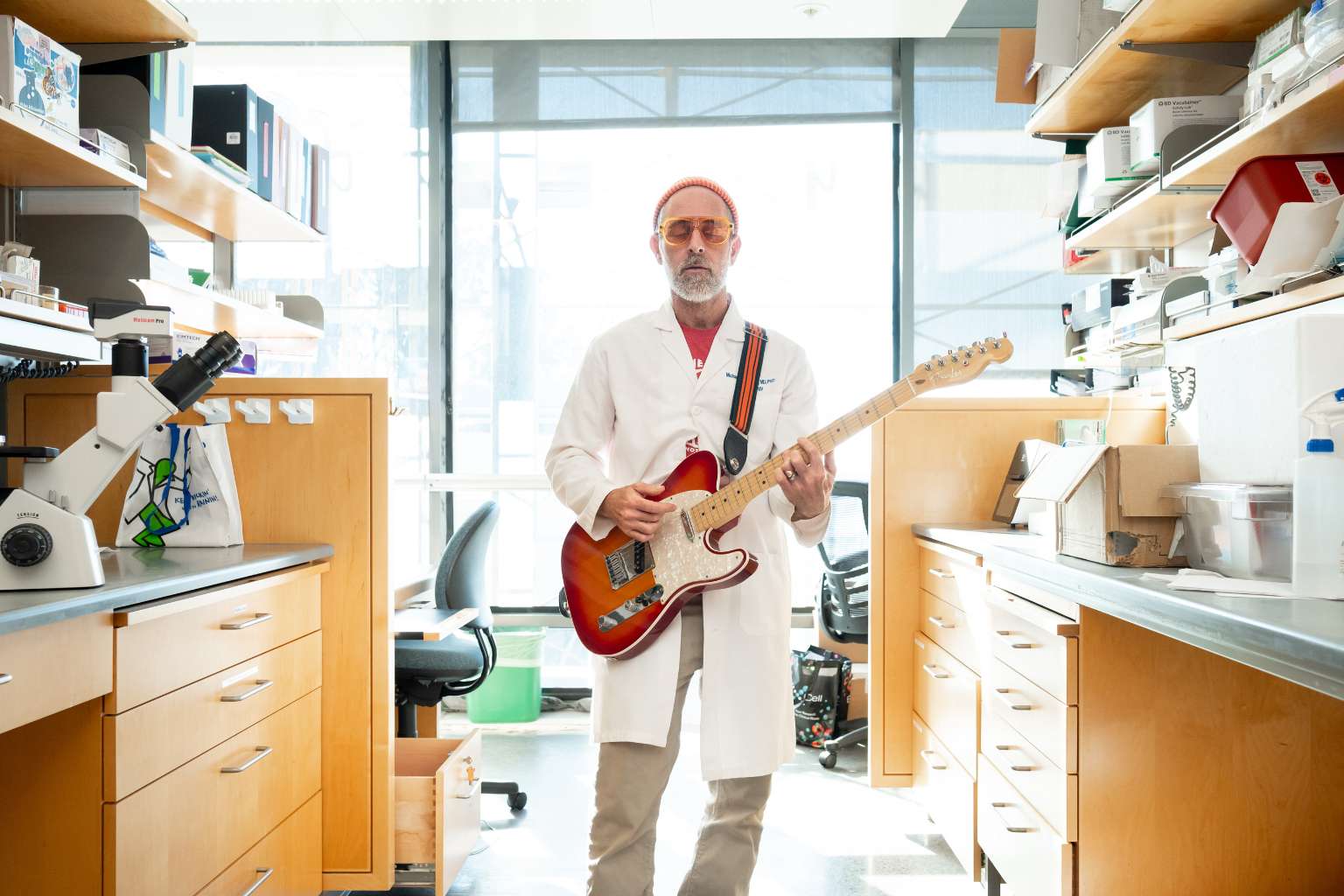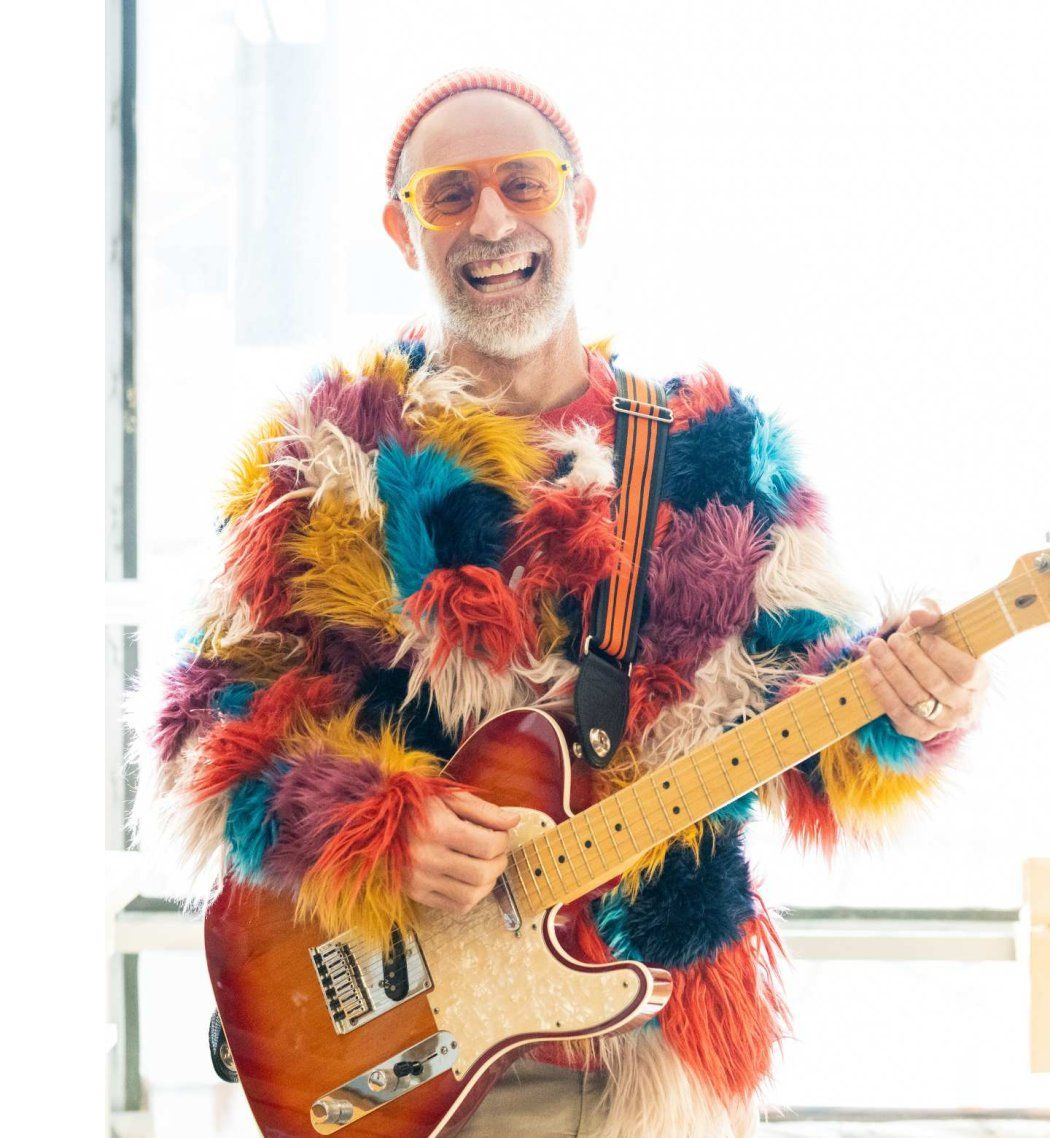The talent in the UC San Francisco community is unparalleled.
There are world-renowned scientists and physicians, hardworking staff and learners who will one day change the world as we know it.
But accomplished musicians? They also walk among us.
One of them is Michael Rosenblum, MD, PhD, professor of dermatology in the UCSF School of Medicine and senior associate, vice chair of research.
The 50-year-old, regarded as one of the top skin immunologists in the world, leads a UCSF-based research lab where a group of scientists investigate how the immune system works in skin. Beyond that work – which has helped spin up several companies at various stages – Rosenblum also treats patients with advanced inflammatory diseases of the skin.
But when he’s not at Health Sciences West on the Parnassus Heights campus or at a UCSF Health clinic with patients, Rosenblum is doing something else entirely.
‘I just kept them in my head’
Rosenblum’s path to playing music didn’t start until college.
The Ontario, Canada, native has been into music ever since he was a little kid. “It’s always been a huge part of my life. I’m into several different genres and have always really gravitated toward classic rock. I think that’s always where my heart has been.”
Rosenblum’s favorites include Led Zeppelin, The Rolling Stones and The Tragically Hip, among others, though now older with three kids, he’s allowed pop music into his rotation.
First picking up the guitar at 20 years old, Rosenblum’s introduction to playing music came as an undergraduate student in the dorms at the University of British Columbia.
“Honestly, I’ve never had a lesson,” he said. “I started playing there and then have been playing guitar consistently for the last 30 years. Originally, I wasn’t doing much singing. I was just basically playing guitar.”
Guitar in hand, Rosenblum went on to attend Milwaukee’s Medical College of Wisconsin to get his MD and PhD degrees. He later made his way to San Francisco in 2007, becoming a dermatology resident at UCSF.
He progressed to a postdoctoral scholar, junior faculty, and is now a full professor.
‘It’s telling a story’
Maggie Lowe, PharmD, PhD, calls herself one of Rosenblum’s biggest supporters.
The assistant professor of dermatology in the School of Medicine started at UCSF as a graduate student in 2008, later joining Rosenblum’s lab. It’s not lost on her why music comes naturally to Rosenblum, a boss she called “an amazing mentor.”
“It’s telling a story,” Lowe said. “Science does not mean that much unless we are able to put together a cohesive message. If you look at a single experiment it won’t really reveal that much. But when you see a series of experiments used to ask and answer a question, that’s where Mike has a strength as a scientist. That lends itself well to music because you’re trying to tell stories through music.”
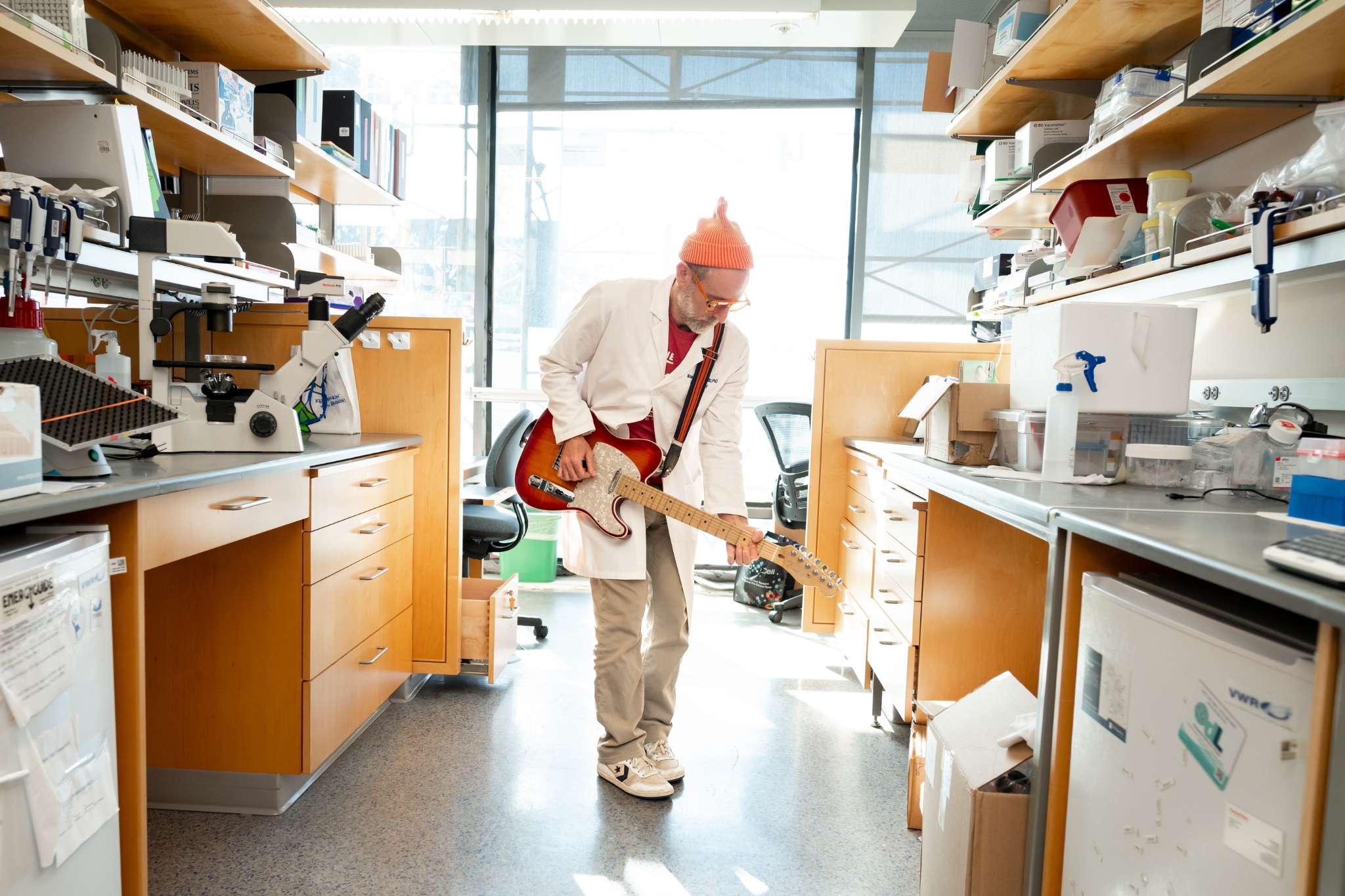
“I’d written songs before that, but they’ve always just been for me.”
Michael Rosenblum, MD, PhD

“I’d written songs before that, but they’ve always just been for me.”
Michael Rosenblum, MD, PhD
Science and music as a thread
Along the way, Rosenblum found others at and outside of UCSF who had science and music as a common thread.
One was Rich Schneider, PhD, School of Medicine orthopedic professor.
“We’re all in clinical departments,” Schneider said. “And for many clinical faculty, golf is a hobby, which is fine, But I’ve never been interested in playing golf. I’ve always been interested in playing music. Having these intense day jobs, it’s important to have an outlet.”
Guitarist Rosenblum and drummer Schneider teamed up with Ken Fox, MD, four-string guitarist and Kaiser Permanente neurologist, to form the blues and surf rock band Light Chain in the early days of the COVID-19 pandemic.
“We originally started doing covers,” Schneider said. “Then, once we realized we could do more to challenge ourselves, we decided to write our own music.”
Having these intense day jobs, it’s important to have an outlet.”
Light Chain bandmate Schneider pointed to Rosenblum’s creativity and motivation as driving him in music and his career.
“Mike is talented in many ways,” he said. “He’s full of creativity and bursting with energy. Anything he does he accelerates at, whether it’s his career in health care or research or playing music. He’s highly motivated and can accomplish whatever he sets his mind to.”
The band cut an album together at Brisbane-based Lucky Recording Company that was released in 2023.
“I thought we made a really good album,” Rosenblum said. “At the same time, I was sort of building my own recording stuff. It was different than the music that we were doing as a band. So, I sort of kept it to myself and continued to record and get better at my home recording thing. I’d written songs before that, but they’ve always just been for me. I never really tried to record anything. I just sort of kept them in my head.”
But the songs wouldn’t stay in his head for long.
Working with contacts he’d built through Light Chain, Rosenblum was about to set out on his first voyage as a solo artist – one that would challenge his confidence as a musician and require his creative experience as a scientist and clinician.
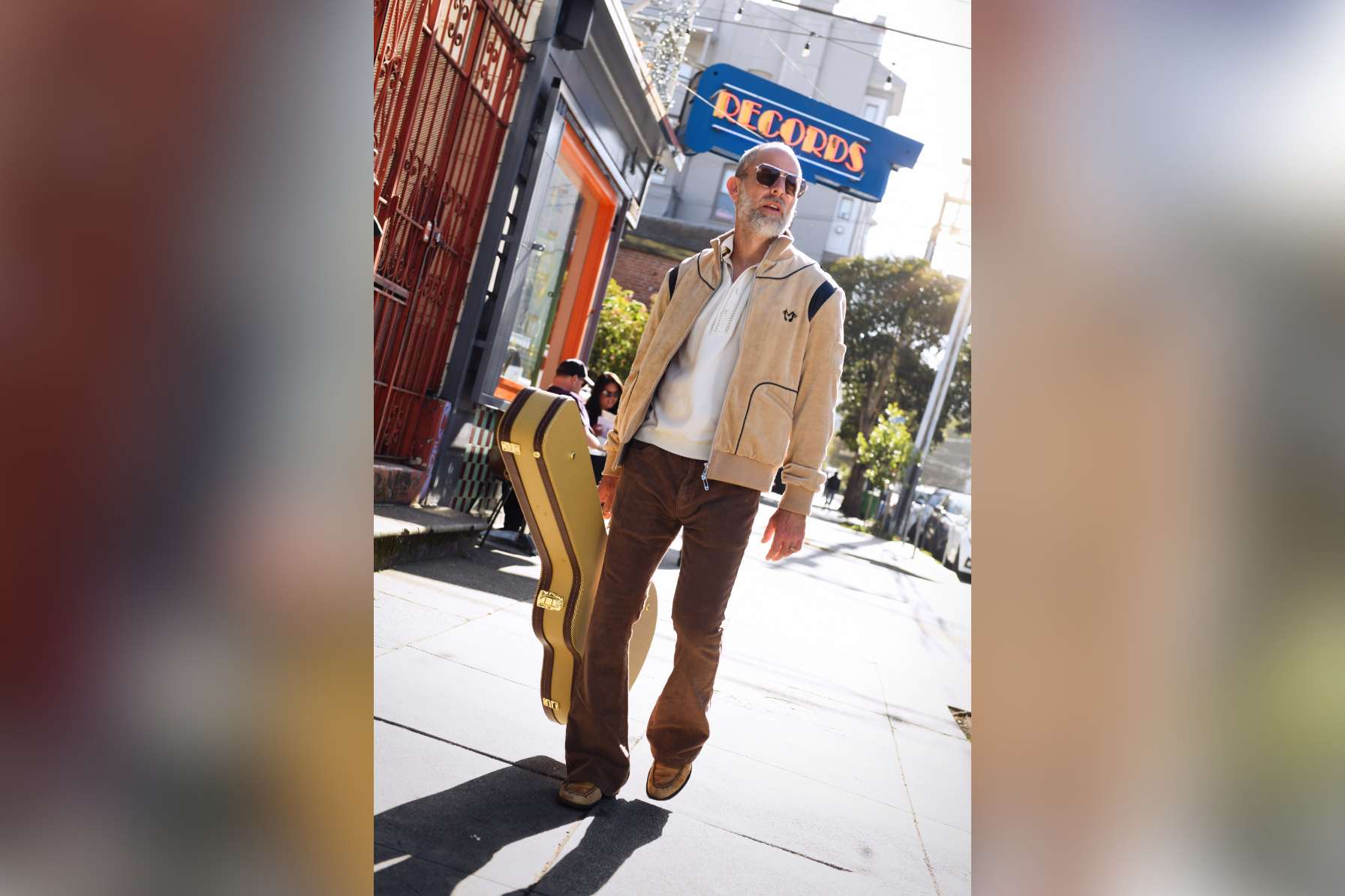
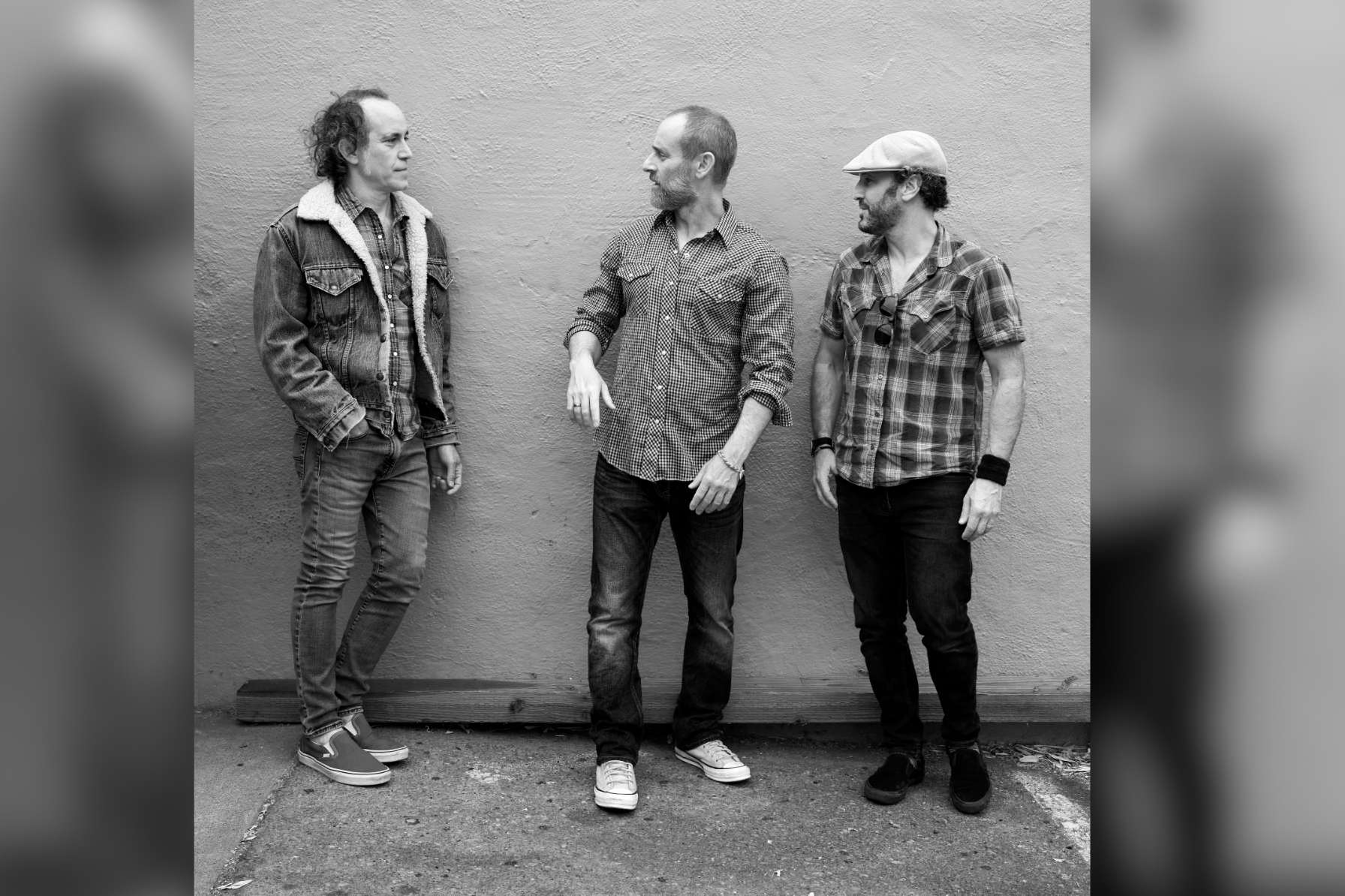
From sabbatical to studio
For his solo music, Rosenblum did much of his songwriting while on a year-long sabbatical from 2022-2023, after Light Chain had finished recording.
During that time, he went on a trip that took his family to locations like Australia, New Zealand, the Netherlands, Italy, Spain, London and Ireland.
About halfway through his leave, Rosenblum came back to the Bay Area to give his new songs a test drive with the same producers, Travis Kasperbauer and Mikel Ross, that helped make Light Chain’s album a reality just a few months prior.
“Their advice was to keep writing, and ‘Come back in six months and we’ll sit down and record this,’” he recalled. “It was exactly the positive reinforcement that I needed.”
That was a lift coming from a producing team that had previously worked with rock n’ roll legends like Jackson Browne and the Go-Go’s.
The self-described indie pop music – which Rosenblum wrote under the name PrettyBoy Chance – really took flight when he returned from his sabbatical in July 2023. That’s when his producers called in guitarist Joe Gore and drummer Paulo Baldi to give the songs an entirely new dimension.
Gore is a long-time guitarist for Tom Waits and has worked with Tracy Chapman, most recently appearing on-stage with the singer-songwriter at the GRAMMY Awards for her duet with Luke Combs. Baldi spent a decade behind the kit with indie rockers Cake and had recently toured with Les Claypool and Julian Lennon.
He’s full of creativity and bursting with energy.”
“All of a sudden the songs went from these scratch tracks that I recorded on my home equipment to Paulo and Joe contributing in major ways,” Rosenblum said.
Then Rock n’ Roll Hall of Famer Jane Wiedlin of the Go-Go’s, another legendary friend of Rosenblum’s producers, lent her voice to a few tracks, a recording experience the UCSF dermatologist called “surreal.”
Finished tracks in hand, now all Rosenblum had to do was release it to the world.
Generational art
Rosenblum’s dad, an artist himself, painted many canvases that hang throughout his family’s homes.
For Rosenblum, that kind of generational art is the stuff this album is made of.
“That contribution will be a legacy that people will remember him by in our family,” Rosenblum said. “When I really dove into this, I thought, ‘Well, why do I want to do this? Why does it matter?’ I want to create something that’s a reflection of where I am right now in my life that will stay at least long enough that maybe a couple of generations of my family will hold on to it and be able to access it.”
PrettyBoyChance’s first single, the bouncy “Dance With Me,” was released in mid-September. The full debut album – titled “Chasing the Sun” – came out in late October.
Fans will get to hear the album at a record release show at the iconic Great Star Theater in San Francisco’s Chinatown this month.
Despite the musical lifestyle, Rosenblum has no plans to quit his day job.
He remains focused on making discoveries in his UCSF lab, translating those breakthroughs into new medicines, and seeing patients at UCSF Health.
“I feel like there are a lot of ways you can have a positive impact on people,” Rosenblum said. “You can do it through discovery and trying to create novel medicines. You also can do it through creating a piece of art that people smile to and they sing for a portion of the day.”
